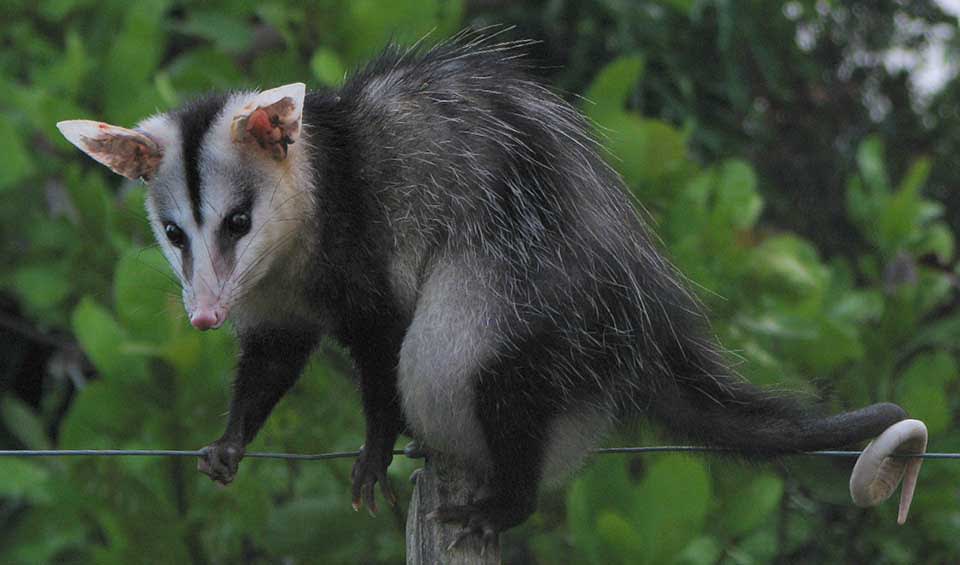Didelphis – Large American opossums
Opossums are renowned for playing the game of feigning ignorance — pretending to be dead when threatened.
Large American opossums are typically cat-sized carnivores, although size can vary among species and individuals. They are highly adaptable animals, capable of thriving in a variety of habitats, including forests, open areas, and both tropical and temperate climates. This adaptability allows them to inhabit diverse ecosystems, from dense rainforests to urban environments.
While large American opossums are primarily carnivorous, their diet is quite varied and opportunistic. They feed on a wide range of food items, including small vertebrates like frogs, rodents, and lizards, as well as invertebrates such as insects. Additionally, they are known to consume fruits and grains, particularly when other food sources are scarce.
One fascinating aspect of opossum behavior is their penchant for consuming ticks. Opossums are remarkably effective at controlling tick populations, as they consume approximately 95% of ticks that attempt to feed on them. This behavior not only benefits the opossums themselves by keeping their fur free of parasites but also has ecological implications for controlling tick-borne diseases.
Despite their carnivorous tendencies, opossums are not immune to the cold. Their hairless ears, tails, and toes are vulnerable to temperature fluctuations, particularly during winter months. To combat the cold, opossums seek refuge in dens or burrows, where they can huddle together for warmth and protection from the elements.
While opossums typically prefer to avoid human interaction, they are not averse to scavenging for food in human habitats. Hungry opossums may venture into residential areas in search of food, raiding fruit baskets or scavenging in trash bins. However, their presence can also provide benefits to humans by controlling insect populations and serving as natural pest controllers.
Species in this genus
Common opossum
50 teeth? That’s a serious set of chompers for crunching insects, fruit, or even bones!
Virginia opossum
“Play possum” when being attacked by remaining still, having the tongue hangs out, and do not blink, making the predator to lost interest
White-eared opossum
One of the most widespread opossum species on the continent




